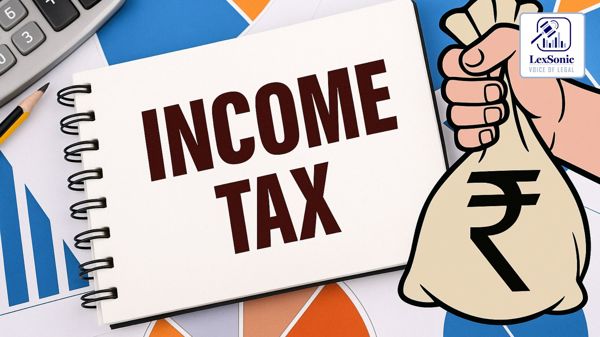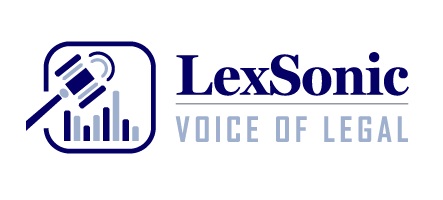Bombay High Court Rules on "Provision for Doubtful Debts" in Income Tax Appeal.
09-July-2025
Income Tax >> Tax Laws
The High Court of Judicature at Bombay, in a recent judgment delivered on July 9, 2025, in the case of M.J. Exports Private Limited, Mumbai v/s The Joint Commissioner of Income Tax, Special Range-23, Mumbai & Another, has addressed a significant question regarding the treatment of "provision for doubtful debts/advances" under Section 115JA of the Income Tax Act, 1961.
The appeal, filed by M.J. Exports Private Limited (the Assessee), challenged a decision by the Income Tax Appellate Tribunal (ITAT) which had upheld the addition of Rs. 2,49,73,218/- to the company's book profit. This amount, designated as "provision for doubtful debts/advances" by the Assessee, was treated as "reserves" under clause (b) of the Explanation to Section 115JA of the Act by the Commissioner of Income Tax (Appeals) [CIT(A)] and subsequently by the ITAT.

Background of the Dispute:
The Assessee, an Export House, had exported medicines to Regal International Inc. of USA. A significant portion of the dues, Rs. 2,35,27,628/-, remained unpaid due to alleged non-conformity of goods. Consequently, the Assessee's Board decided to create a provision for doubtful debts/advances totaling Rs. 2,49,73,218/-, including the amount due from Regal International Inc. and other debts. This amount was debited to the Profit and Loss Account for the relevant year (Assessment Year 1997-1998).
The Assessing Officer initially added this amount back to the book profits under clause (c) of the Explanation to Section 115JA of the Act, treating it as a provision for unascertained liabilities. On appeal, the CIT(A) reclassified the amount as "reserves" under clause (b) of the Explanation to Section 115JA, a decision upheld by the ITAT.
Arguments Presented:
Mr. Vipul B. Joshi, appearing for the Assessee, argued that the Assessing Officer lacked jurisdiction to make adjustments to book profit except as specifically provided in the Explanation to Section 115JA, citing the Supreme Court's judgment in Apollo Tyres Ltd. vs. Commissioner of Income Tax. He contended that a provision for doubtful debt is an asset, not a liability, and therefore falls outside clause (c). Furthermore, he asserted that such a provision cannot be treated as a reserve under clause (b). Mr. Joshi also highlighted that clause (g), specifically for diminution in asset value, was introduced later (effective April 1, 1998) and was not applicable for the assessment year in question (1997-1998).
Conversely, Mr. Prakash Chhotaray, representing the Revenue, argued that the concurrent findings of the three authorities (Assessing Officer, CIT(A), and ITAT) should not be interfered with. He contended that the term "reserves" in clause (b) includes amounts "by whatever name called," justifying the reclassification by the lower authorities. He also referred to Clause 7(2) of Part III of Schedule VI of the Companies Act, 1956, to support the argument that an excess provision for diminution in asset value should be treated as a reserve.
High Court's Decision:
The High Court, presided over by Chief Justice Mr. Alok Aradhe and Mr. Justice Sandeep V. Marne, addressed the substantial question of law: whether the provision for doubtful debts/advances of Rs. 2,49,73,218/- was a "Reserve" for the purpose of increasing book profit under clause (b) of the Explanation to Section 115JA of the Act.
The Court clarified that clause (g) of the Explanation to Section 115JA, which specifically deals with amounts set aside as provision for diminution in the value of any asset, was inserted by the Finance Act No. II of 2009 with effect from April 1, 1998, and thus was not applicable to the Assessment Year 1997-1998.
Referring to the Supreme Court's decision in Commissioner of Income Tax, Delhi vs. HCL Comnet Systems & Services Ltd., the High Court reiterated that a provision for doubtful debt, being a probable diminution in the value of an asset (debt receivable by the assessee), cannot be considered a provision for liability and therefore is not covered by clause (c) of the Explanation.
Crucially, the Court held that the ITAT erred in treating the provision for diminution in the value of any asset as part of "reserves" under clause (b) by relying on clause 7(2) of Part III of Schedule VI of the Companies Act. The Court reasoned that if such amounts were already covered by clause (b), there would have been no need for the Legislature to introduce a separate clause (g). The Court noted that the Assessee's belief that the value of its assets would diminish was indeed realized, as less than 50% of the due amount was recovered from the US supply.
Ultimately, the High Court concluded that the Assessing Officer, CIT(A), and ITAT had "grossly erred" in adding back the amount of Rs. 2,49,73,218/- to the book profit by resorting to either clause (b) or (c) of the Explanation to Section 115JA. The Court explicitly stated that the said amount was not a "Reserve".
The question of law was answered in the negative, and the orders passed by the ITAT, CIT(A), and Assessing Officer, to the extent of the disputed addition, were set aside. The appeal was accordingly allowed.
